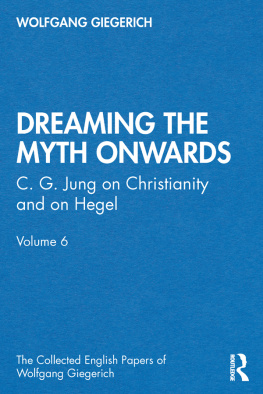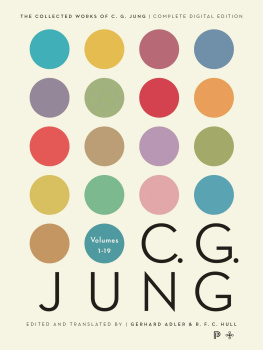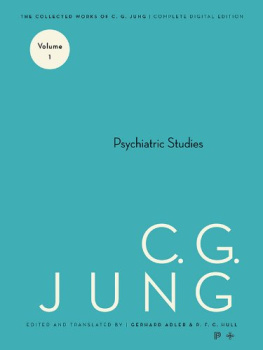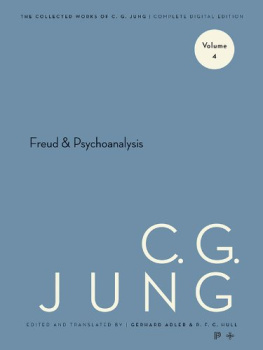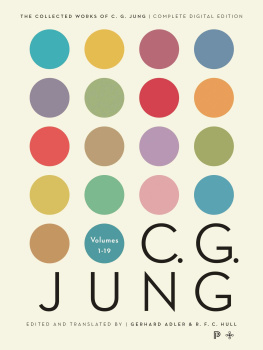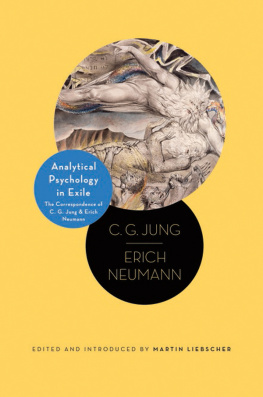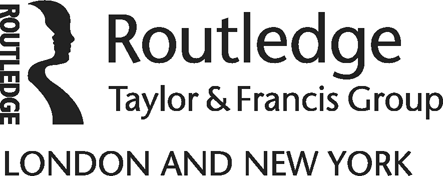Wolfgang Giegerich - “Dreaming the Myth Onwards”: C. G. Jung on Christianity and on Hegel
Here you can read online Wolfgang Giegerich - “Dreaming the Myth Onwards”: C. G. Jung on Christianity and on Hegel full text of the book (entire story) in english for free. Download pdf and epub, get meaning, cover and reviews about this ebook. year: 2020, publisher: Routledge, genre: Religion. Description of the work, (preface) as well as reviews are available. Best literature library LitArk.com created for fans of good reading and offers a wide selection of genres:
Romance novel
Science fiction
Adventure
Detective
Science
History
Home and family
Prose
Art
Politics
Computer
Non-fiction
Religion
Business
Children
Humor
Choose a favorite category and find really read worthwhile books. Enjoy immersion in the world of imagination, feel the emotions of the characters or learn something new for yourself, make an fascinating discovery.
- Book:“Dreaming the Myth Onwards”: C. G. Jung on Christianity and on Hegel
- Author:
- Publisher:Routledge
- Genre:
- Year:2020
- Rating:3 / 5
- Favourites:Add to favourites
- Your mark:
“Dreaming the Myth Onwards”: C. G. Jung on Christianity and on Hegel: summary, description and annotation
We offer to read an annotation, description, summary or preface (depends on what the author of the book "“Dreaming the Myth Onwards”: C. G. Jung on Christianity and on Hegel" wrote himself). If you haven't found the necessary information about the book — write in the comments, we will try to find it.
The fundamental importance of Christianity for Jung is well documented in his writings and letters. For the whole of his long career the great psychologist had wrestled with what he called ... the great snake of the centuries. the burden of the human mind. the problem of Christianity. By comparison, his statements about Hegel are quite scarce. Both topics, nevertheless, have in common that they elicited from Jung radical accusations, accusations not presented in the calm tone of a psychological scholar but fired by a deep-seated personal affect that propelled Jung to wish to dream the myth onwards, that is, to move to a new, his own improved and corrected version of Christianity. Rather than merely portraying and elucidating Jungs views, this volume critically examines his theses and arguments by means of a series of close readings and by confronting his claims with the texts on which his interpretations are based. The guiding principle, in the spirit of which the authors investigation is conducted, is the question of the needs of the soul and the standards of true psychology. While constantly bearing these needs and standards in mind, diverse topics are discussed in depth: Jungs interpretation of a dream he had had about being unable to completely bow down before the highest presence, his thesis concerning the patriarchal neglect of the feminine principle, his views about the alleged one-sidedness of Christianity, the recalcitrant Fourth and the reality of Evil, his understanding of the Trinity and the spirit, his rejection of Hegel and of speculative thought, and his reaction to the modern doubt that has killed religious faith.
A companion to the preceding volume, The Flight into the Unconscious, the essays collected here continue its radical critique of Jungs psychology project, yielding not only deep insights into Jungs personal religiosity and into what ultimately drove his psychology project as a whole, but granting as well a more sophisticated understanding of the psychological potential and telos of the Christian idea.
Wolfgang Giegerich: author's other books
Who wrote “Dreaming the Myth Onwards”: C. G. Jung on Christianity and on Hegel? Find out the surname, the name of the author of the book and a list of all author's works by series.

